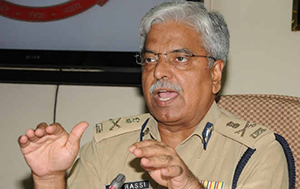New Delhi, May 31: B S Bassi, who had a controversial tenure as Delhi Police Commissioner with frequent run-ins with the AAP government, was today appointed a member of UPSC, a Constitutional post, with a five year tenure.
The Government cleared the name of 60-year-old Bassi as member of the Union Public Service Commission (UPSC), which conducts the civil services examination to select IAS and IPS officers among others. The Commission has a maximum strength of 10 members besides a Chairperson.
A 1977 batch IPS officer of Arunachal Pradesh-Goa-Mizoram and Union Territories (AGMUT) cadre, Bassi retired as Delhi Police chief in February this year after completing 60 years.
He will have a tenure of about five years till February, 2021. Under the Constitution, a member of the UPSC can have a maximum of six years tenure or till he attains age of 65 years.
Bassi's tenure as Delhi Police Commissioner, especially towards the end, had come for criticism after the arrest of Jawaharlal Nehru University Students Union (JNUSU) President Kanhaiya Kumar over sedition row. The former police Chief was involved in a running battle with the AAP government led by Arvind Kejriwal.
The UPSC is headed by a chairman besides maximum of ten members. With Bassi's appointment, the Commission is in its full strength.
Alka Sirohi, David R Syiemlieh, Manbir Singh, Former Navy Vice Chief D K Dewan, Vinay Mittal, Chhatar Singh, Prof Hem Chandra, Arvind Saxena and Prof Pradeep Kumar Joshi are other members of the UPSC, headed by Deepak Gupta as its Chairman.
The members to the Commission are mainly experts drawn from various streams which includes the IAS, IPS and other All India services.
It had former CBI Director A P Singh as one of its member, representing the IPS. However, after his name was linked to controversial meat exporter Moin Qureshi, he tendered his resignation in January 2015.







Comments
Add new comment